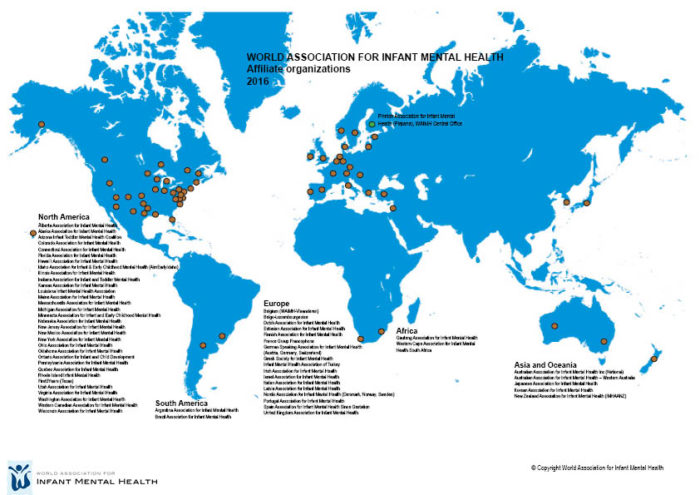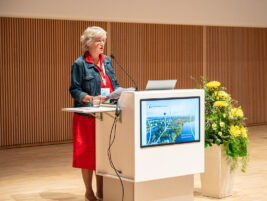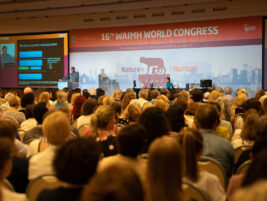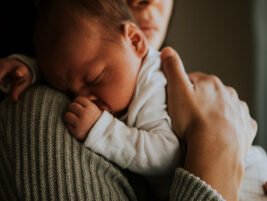Koriyama City is located at the center of Fukushima Prefecture, 60 km west of the nuclear power plant. A lot of local people were affected greatly by the radiation disaster, leaving some areas with high contamination levels. Even after three years, the dark shadow of our lives makes us feel as though it was just yesterday. For example, the front page of a local newspaper has some report related to the radiation disaster, contaminated soils from family gardens stored away can be seen everywhere, radiation monitoring posts at schools and parks that the city owns, and there are many parents and those caring children fighting against the unseen enemy to protect children. Probably, the areas which had been greatly damaged by the tsunami still carry scars with numerous problems.
Looking into domestic news, the topics on the Olympics are widely reported but there are few reports related to the earthquake disasters. How have children, so vulnerable as a group in face of disaster, lived these past 3 years? What is the situation for children now? How have children been affected by the Fukushima disaster and will children be affected by the disaster in the future?
In an unprecedented situation, we established the Koriyama City Postdisaster Childcare Project in corporation with Koriyama city council, Koriyama city Board of Education, Koriyama medical association, to protect children. At first, our activities were based on mental health supports, which were given a lot by FOUR WINDS members whom we thank greatly. The intent was to prevent Post Traumatic Stress Disorder (PTSD). Thankfully, the PTSD cases appeared low right after the disaster, so that we were relieved thinking that the mental health activities had had a good result. However, as time goes on, we grasp the worsening environment surrounding children in child physical and adult mental health problems.
Children grow and develop each day. They need to absorb stimulation according to their age and environment in order to develop their own brain, body and mind. However, in the Fukushima area, the rapid change in the living environment combined with the avoidance of playing outdoors, resulted in the weakening of physical strength and fitness of young children. In response to the pressing needs for play space, we installed a spacious children’s indoor playground called PEP Kids Koriyama 9 months after the disasters. In 2 years, over 650,000 children and parents have visited the place.
We also observed that child obesity increased. In coopperation with the schools, we surveyed children’s growth and development, as well as the living environment. The survey revealed concerns about the children’s living environment.
Children around the Fukushima disaster area face many problems. However, a similar situation was seen under the shadow of rapid economy growth in Japan in the 1980s. Deterioration of the child development environment in Japan was the start of everything. We need to face this problem now and make the environment to bring up healthy body and mind of children.
We have the great opportunity to organize the 17th FOUR WINDS congress in Fukushima. We post activities that we have taken after the disasters, problems of child rearing in Fukushima and affected areas, and what we should be doing from now. We want to make children in Fukushima the “happiest in Japan”. We believe that our initiation in Fukushima of attention to mental health concerns, child play spaces, and healthy child development environments will eventually spread across Japan to make all children in Japan happy as we continue our work.
References
Kikuchi S1, Kikuchi T. The medical association activity and pediatric care after the earthquake disaster in Fukushima.
Keio J Med. 2012;61(1):23-7. https://www.jstage.jst.go.jp/ article/kjm/61/1/61_1_23/_ pdf
Links
This article in Japanese (PDF)
FOUR WINDS congress(in Japanese)
https://child-health.jp/publics/ index/16/&anchor_ link=page16#page16
PEP Network of Child Care in Koriyama (in English)
https://www.pepnet.jp/english.html
Reconstruction Agency (in English)
https://www.reconstruction.go.jp/english/
Dr. Kaija Puura, Associate Executive Director of WAIMH (Adjunct Professor in the Department of Child Psychiatry in the University of Tampere, Finland and Chief of Child Psychiatry in Tampere University Hospital) will be giving a lecture titled «Building resilience and helping children and their families in traumatic situations» at the 17th FOUR WINDS Congress in Koriyama, Fukushima.
The 17th FOUR WINDS Congress in Koriyama, Fukushima
Authors
Kikuchi, Shintaro,
FOUR WINDS Infant Mental Health,
Koriyama Congress Organizing Chief,
Kikuchi Pediatric Clinic,
Manager of Koriyama City Post-disaster Childcare Project,
NPO PEP Network of Child Care in Koriyama Director,
Member of Reconstruction Promotion Committee,
Reconstruction Agency,
Japan








